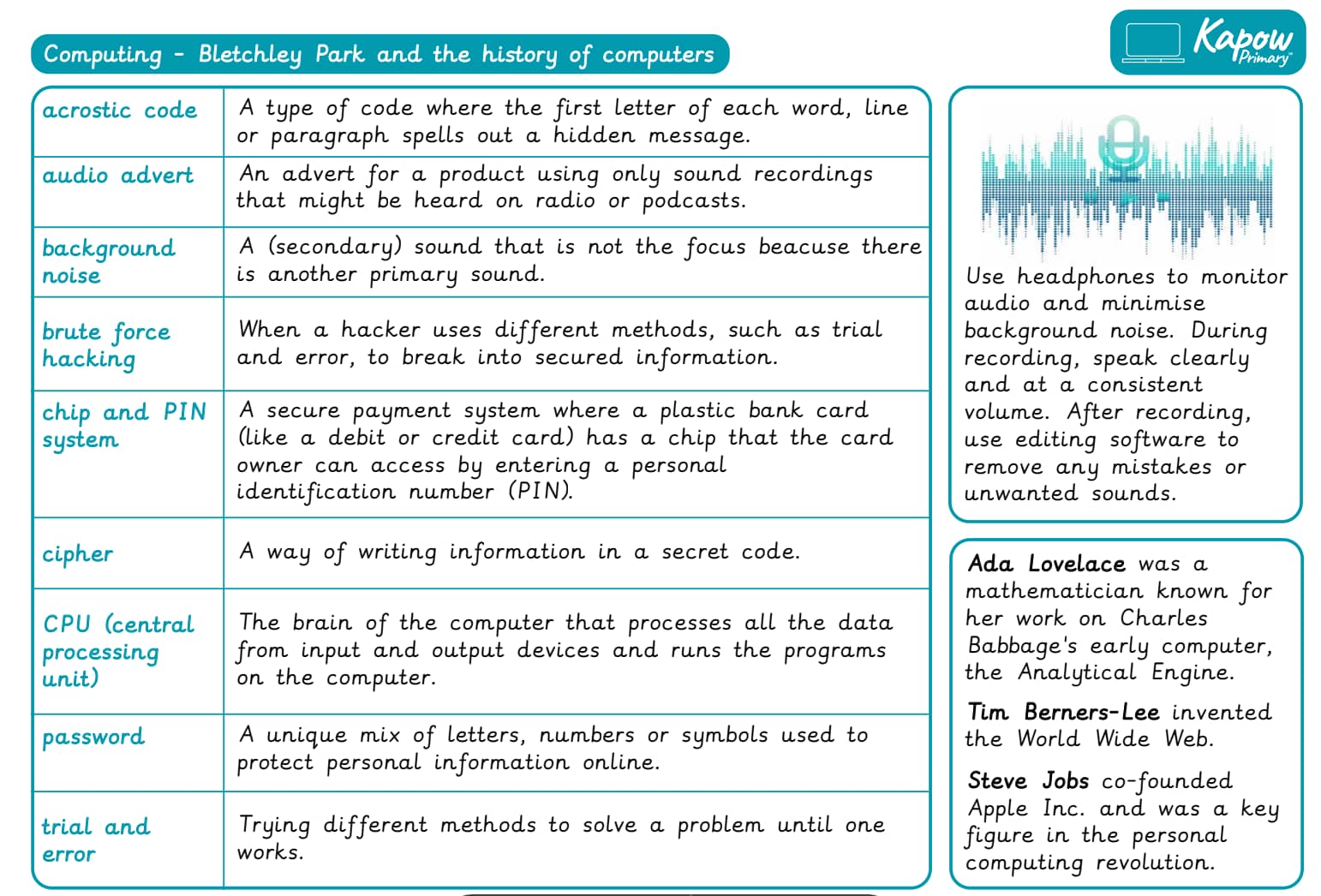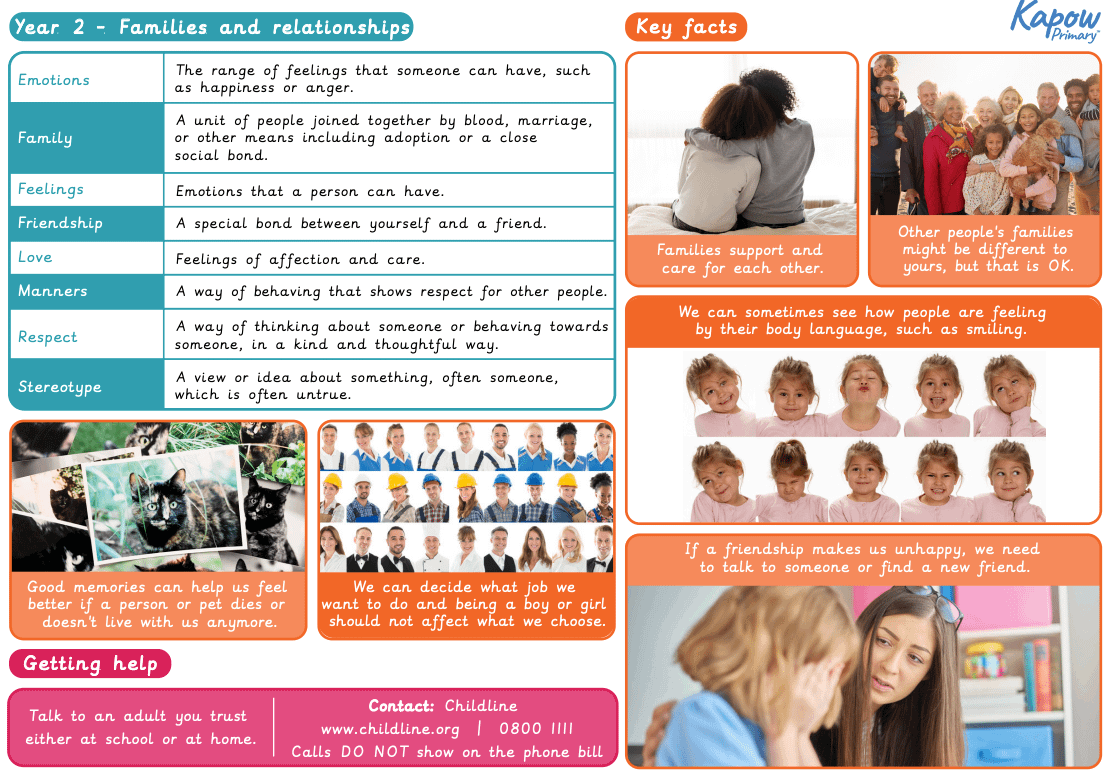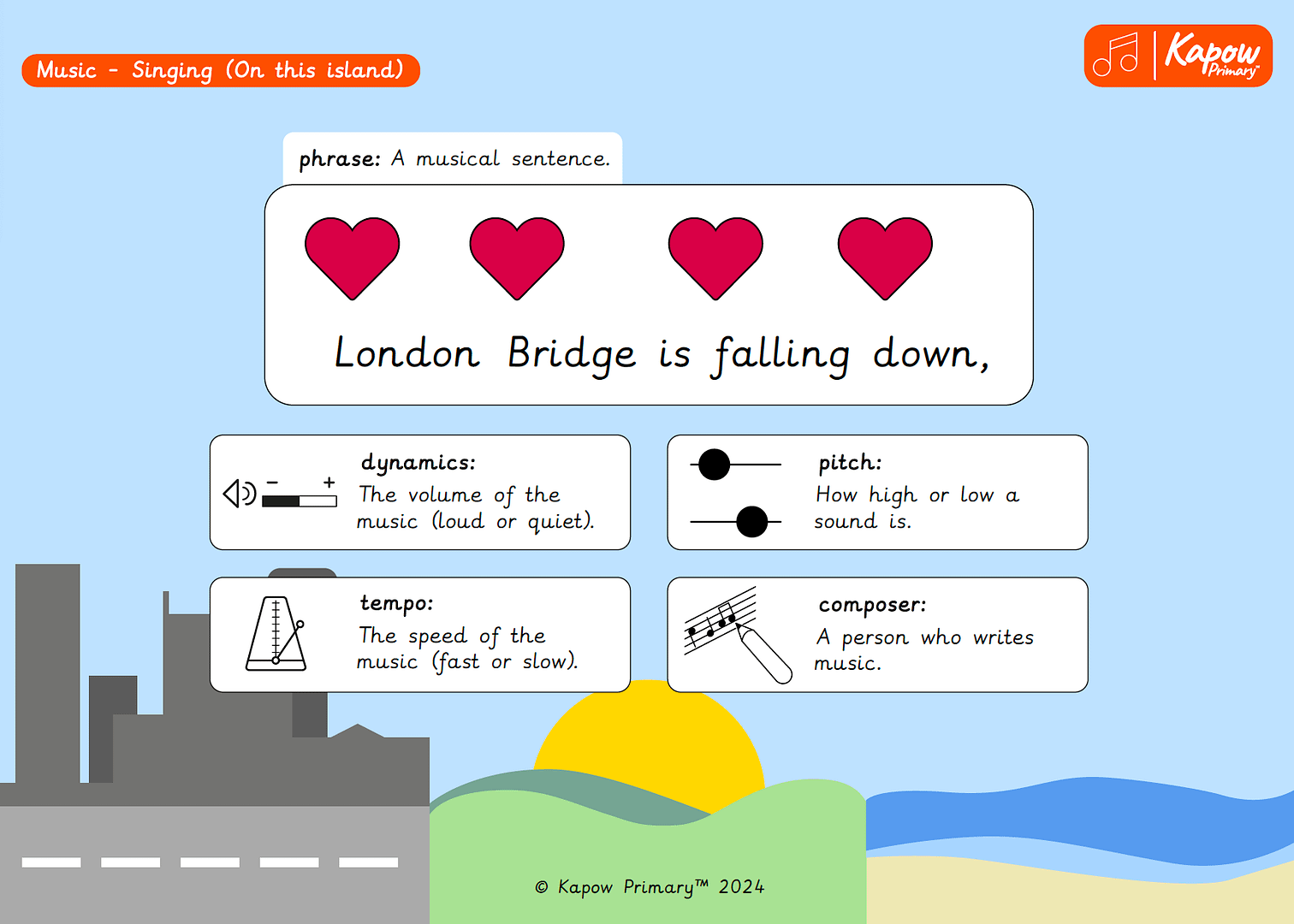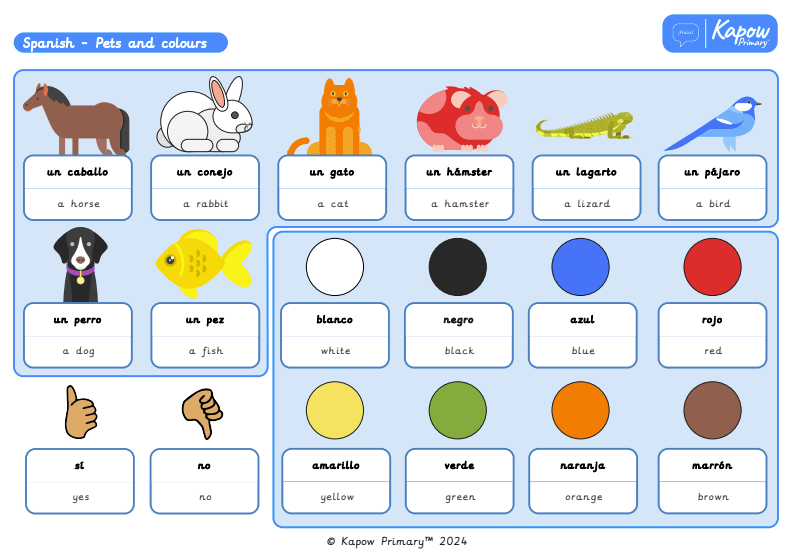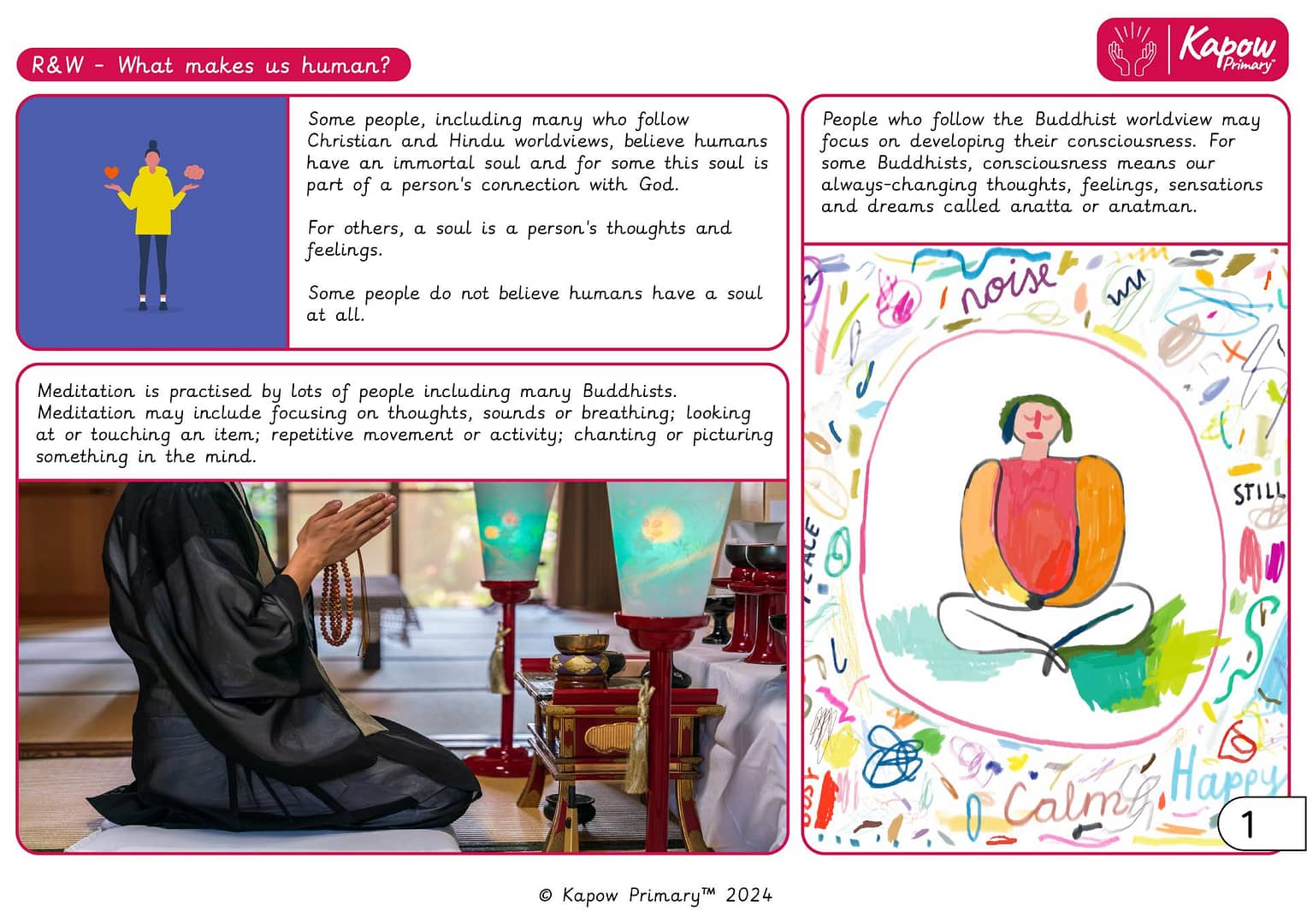
This Knowledge organiser captures the essential knowledge and skills learnt throughout the unit Religion and worldviews, Year 3, What makes us human?
This resource is designed to support children as they explore the question ‘What makes us human?’ through various religious and non-religious worldviews. It highlights key vocabulary, beliefs and practices, such as the concept of the soul in Christianity and Hinduism, the idea of consciousness in Buddhism and differing views on spirituality.
This resource is perfect for consolidating essential knowledge, encouraging thoughtful reflection and an understanding of diverse perspectives on what it means to be human.
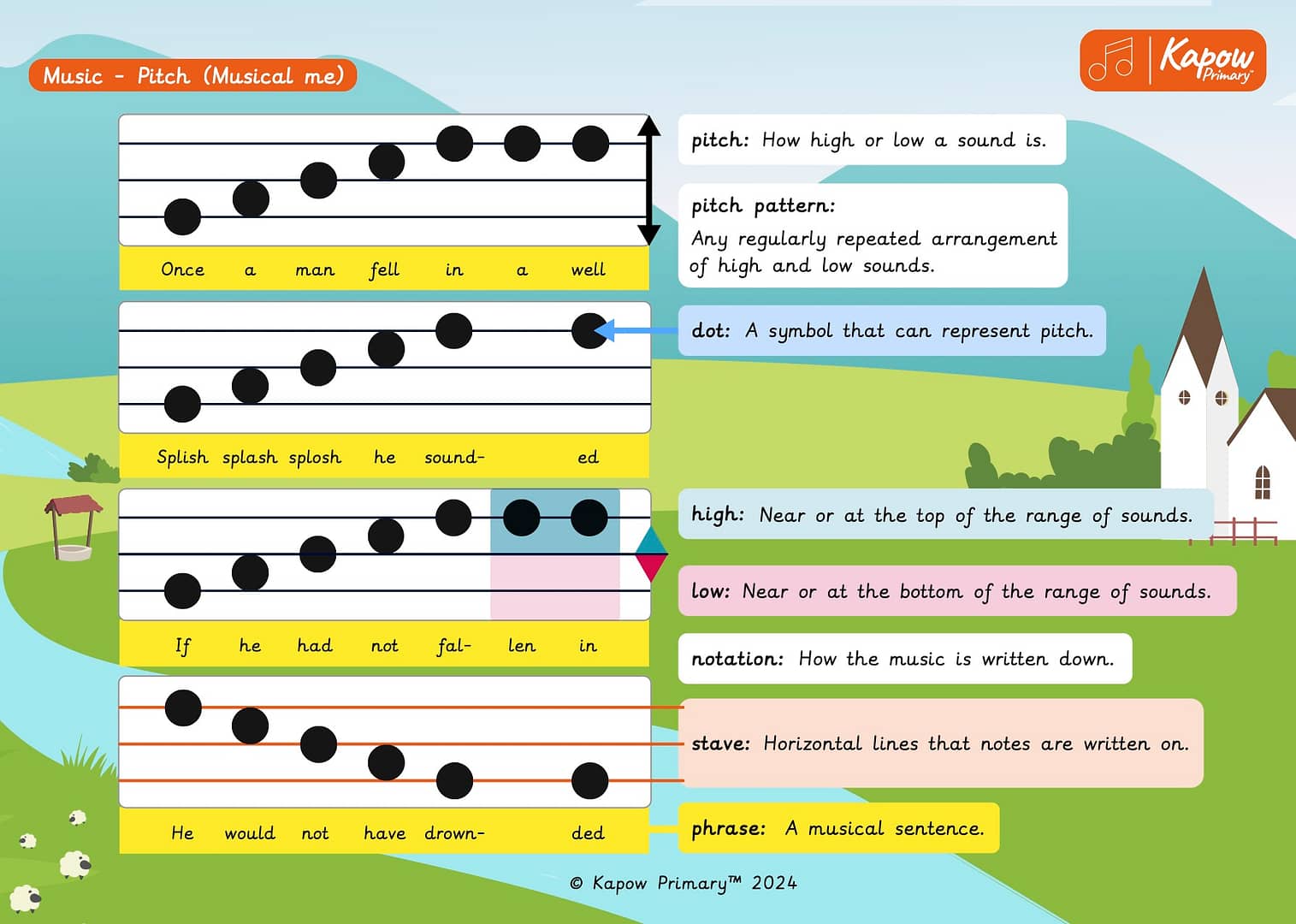
A Knowledge organiser that captures the essential knowledge and skills learnt throughout the unit Music, Year 2, Pitch (Musical Me).
This Music resource is designed to support the pupils as they explore self-expression through music and composition. It introduces key vocabulary such as rhythm, pulse, pitch, structure, and notation, helping the pupils develop an understanding of how musical elements combine to create melodies and songs. The pupils will also learn how to compose and perform simple vocal and instrumental pieces, using different dynamics and tempos to enhance expression.
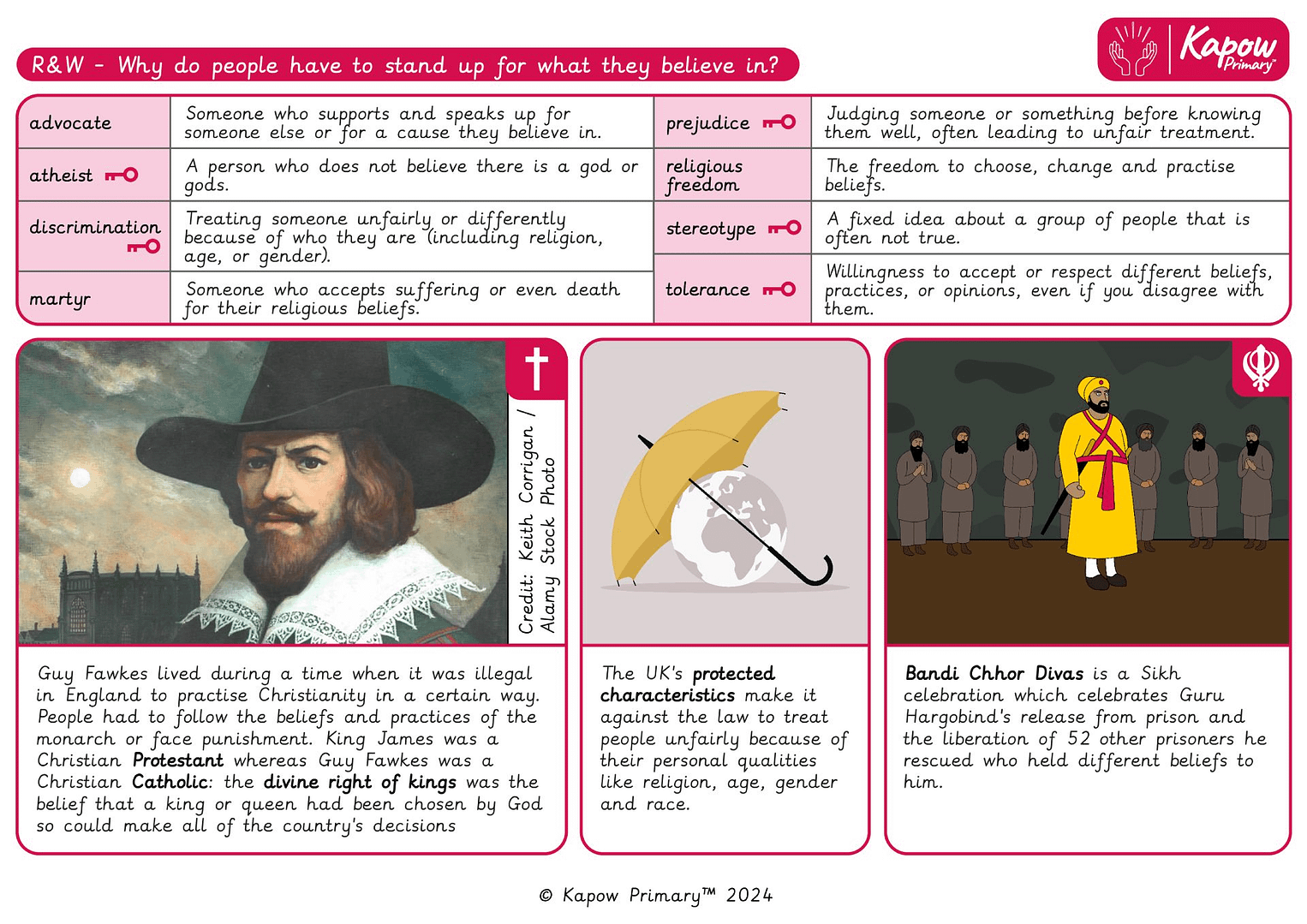
A Knowledge organiser that captures the essential knowledge and skills learnt throughout the unit Religion and worldviews, Year 5/6 (A), Why do people have to stand up for what they believe in?
This resource is designed to help pupils understand how religious and personal beliefs influence people’s decisions to stand up for justice and equality. Through key vocabulary such as tolerance, advocate, prejudice, and religious freedom, pupils explore historical and cultural examples like Guy Fawkes and Bandi Chhor Divas. The organiser encourages reflection on protected characteristics, the consequences of discrimination, and the role of personal conviction in defending others’ rights. It is ideal for deepening understanding of social justice, moral courage, and respect for diversity.
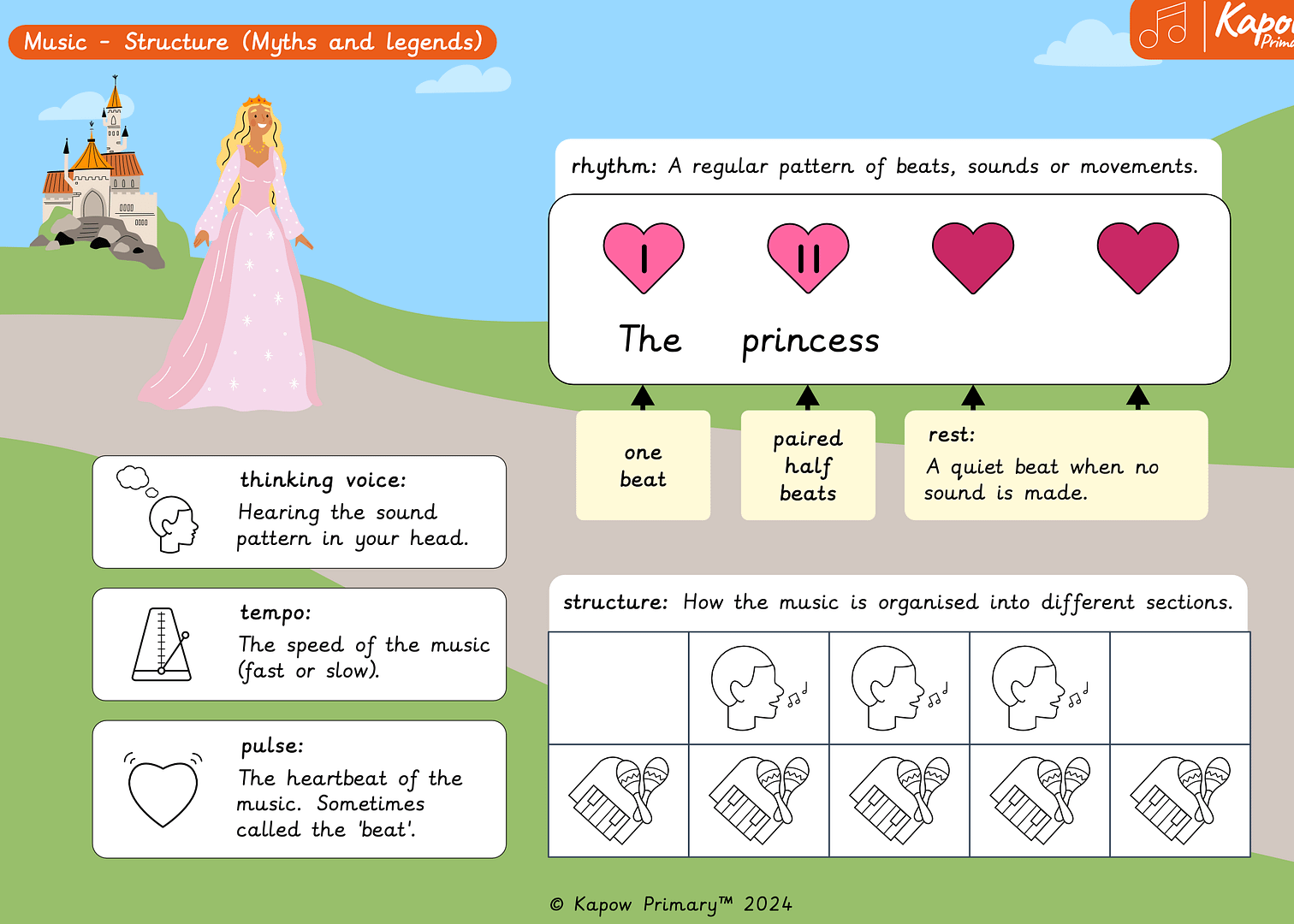
A Knowledge organiser that captures the essential knowledge and skills learnt throughout the mixed-age unit Music, Y2, Structure.
This resource is designed to support children as they explore how musical structure is used through stories in myths and legends. It highlights key vocabulary and concepts, such as rhythm, pulse and tempo, helping children understand how music is organised into different sections. It is perfect for consolidating essential knowledge and developing listening and performance skills in an engaging and meaningful way.


